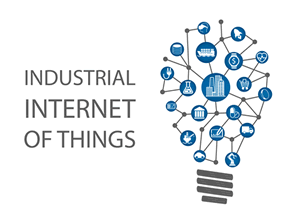
by Gary Mintchell | Jan 22, 2016 | Automation, Education, Internet of Things, Networking, News, Operations Management
 What was once called Information Technology (IT) and then Manufacturing IT (for the IT jobs directly working with the plant such as MES applications) now seems to be falling under the Internet of Things label. Probably part of the reason that there is confusion as to what the IoT term really means.
What was once called Information Technology (IT) and then Manufacturing IT (for the IT jobs directly working with the plant such as MES applications) now seems to be falling under the Internet of Things label. Probably part of the reason that there is confusion as to what the IoT term really means.
Terminology aside, Rockwell Automation and the Industrial IP Advantage (industrial-ip.org) group it has formed have been investing much in providing training on a variety of networking and IT topics. In today’s news, Rockwell Automation and Sunset Learning Institute (SLI) are teaming up to improve and increase access to continuing education and certifications surrounding the Industrial Internet of Things (IoT).
Rockwell Automation has rolled out several courses and a certification program over the last year with its Strategic Alliance Partner Cisco. New courses and certifications can help both IT and OT workers gain the skills needed to manage, administer, design and operate converged industrial networks–now becoming known as industrial internet of things networks. These include the Managing Industrial Networks with Cisco Networking Technologies (IMINS) training course; Managing Industrial Networks for Manufacturing with Cisco Technologies (IMINS2); and CCNA Industrial certification.
SLI specializes in delivering and developing authorized Cisco training. SLI has been a top-tier Authorized Cisco Learning Partner for 20 years. The courses and certifications supported by Rockwell Automation-SLI collaboration include:
- Interconnecting Cisco Networking Devices Part 1 (ICND1): A five-day course on how to install, operate, configure and verify basic IPv4 and IPv6 networks.
- Interconnecting Cisco Networking Devices Part 2 (ICND2): A five-day course on how to install, configure, operate and troubleshoot a small enterprise network.
- Interconnecting Cisco Networking Devices Accelerated (CCNAX): An advanced, five-day course consisting of ICND1 and ICND2 content in its entirety.
- Implementing Cisco Unified Wireless Networking Essentials: A five-day course designed to prepare for the CCNA wireless certification, an associate-level certification specializing in the wireless field.
Students can register for courses via the Rockwell Automation and SLI websites.
Take Advantage of Industrial Internet of Things Opportunities
“Our customers are tasked with building and managing networks and information systems that are different from anything their predecessors confronted,” said Glenn Goldney, global business manager for training services, Rockwell Automation. “Pairing SLI’s qualifications with our own expertise in OT provides IT and OT professionals with premium quality IoT training. These are the skills workers need to take advantage of IoT to drive new opportunities, and unite traditionally disparate practices.”
“The convergence of IT and OT makes it critical that we partner with the very best in the OT space,” said Rick Morgan, CEO, Sunset Learning Institute. “Combining our in-depth knowledge of IT and Cisco markets with Rockwell Automation expertise in the OT space creates an unrivaled partnership in the emerging IoT marketplace.”
SLI also provides a distinct training delivery platform with its High-Definition, Instructor-Led Training (HD-ILT) Network. HD-ILT is SLI’s proprietary video conferencing and patented, remote-lab training modality. Students using HD-ILT have interactive training sessions with two-way, high-definition video and real-time audio, giving instructors and students easy and full visibility of one another.
With over 50 locations across the U.S., Canada and Latin America, the SLI HD-ILT network significantly increases options for IT and OT professionals looking for training without the travel costs. Training is also available in person at Rockwell Automation and SLI facilities across North America. Rockwell Automation and SLI expect to add joint course offerings in the years ahead. All courses are open for registration.
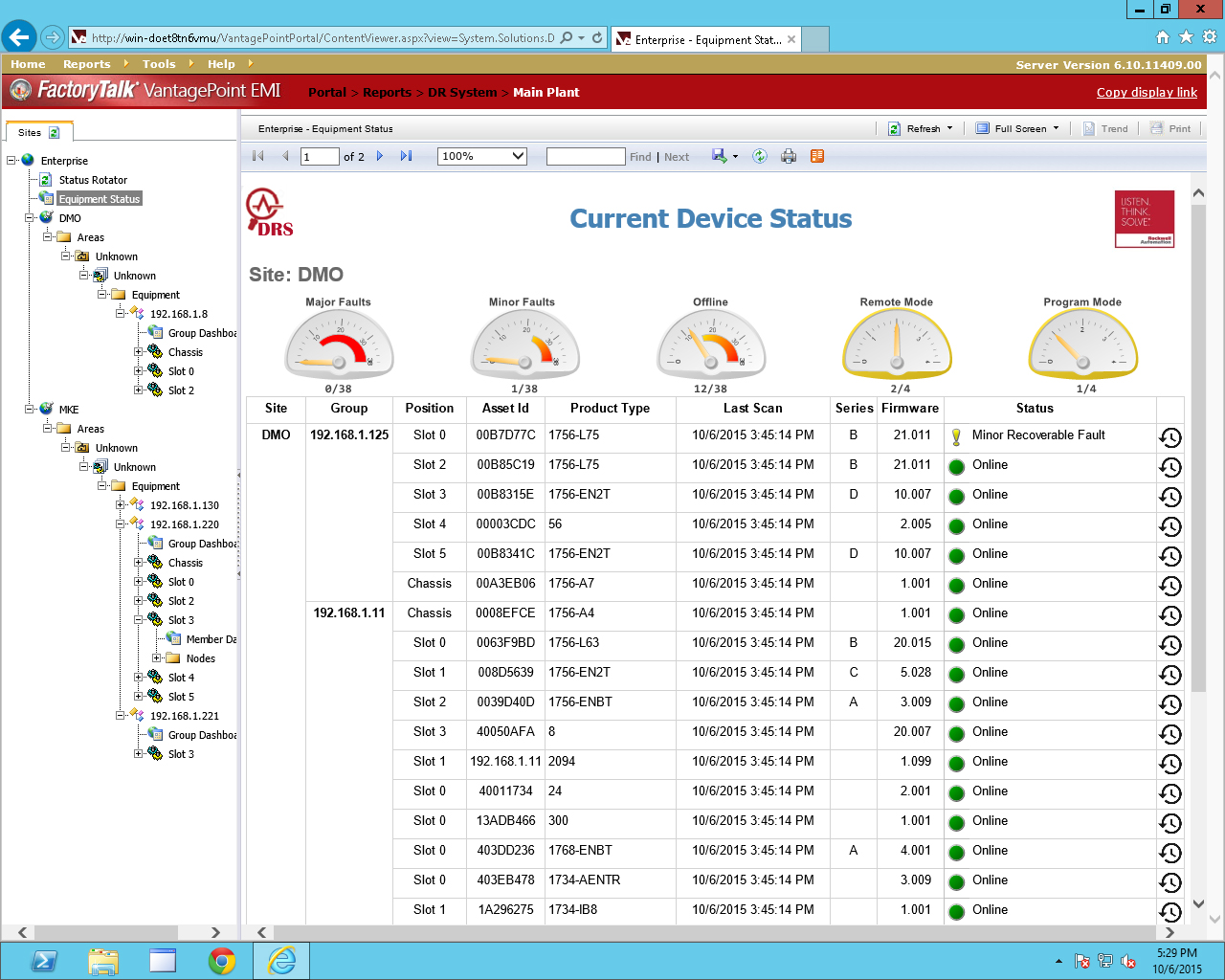
by Gary Mintchell | Jan 11, 2016 | Asset Performance Management, Automation, Internet of Things, Operations Management, Technology
 Remote monitoring and diagnostics is a key driver for the Internet of Things strategy adoption in manufacturing and production. Advances in both the technology and services involved in this area appears to be the area of best economic return these days.
Remote monitoring and diagnostics is a key driver for the Internet of Things strategy adoption in manufacturing and production. Advances in both the technology and services involved in this area appears to be the area of best economic return these days.
Rockwell Automation recently released news about its take on a diagnostic reliability service. Rockwell doesn’t tie it to the Internet of Things, much to its credit. But this solution fits within the broad trend I’ve seen developing.
The solution deploys a layer of technology across plant devices and equipment to monitor and perform analysis, and create a continuous improvement approach to reliability maintenance, reducing operational risk. As part of the service, a Rockwell Automation domain service expert also closely tracks equipment performance to advise on reliability improvements to the production facility.
“Our customers have access to a huge amount of data within their assets, but they often struggle to turn data into useful operational intelligence,” said Ryan Williams, product manager, Rockwell Automation. “In the past, companies relied on maintenance personnel on-site to check the status of equipment in the field and then develop corrective action plans. Now, with the diagnostic reliability service, they can transform maintenance data into asset intelligence. This helps build a more Connected Enterprise, leveraging interconnected data systems and producing actionable information. Companies can better prioritize choices on maintenance and production, and do more with less.”
The solution automatically collects identity and health data from all networked devices on the production control network. The data is then modeled with asset management information to trigger events and send alerts to necessary personnel for proactive maintenance. With the service, Rockwell Automation asset reliability professionals assist users in applying the intelligence on their critical equipment to inform data-driven maintenance decisions and increase productivity.
Case in diagnostics
Case in point: A major oil and gas company used the diagnostic reliability solution to help centralize information gathering and monitor hundreds of critical control assets across a California rural valley. The company also needed inventory of all the field devices in its process control network for a companywide cybersecurity policy. The automated identification and monitoring solution helped the company’s California business unit comply with the new corporate policy, reduce costs associated with field service manpower through proactive maintenance, and increase its daily oil production.
Through integrated, automated device identification and tracking, other customers using the diagnostic reliability service can realize approximately 70 percent reduction in manual data-collection time.
The diagnostic reliability offering is applicable to all manufacturers, with an industry emphasis including oil and gas, mining metals and cement, auto tire and rubber, and consumer packaged goods.
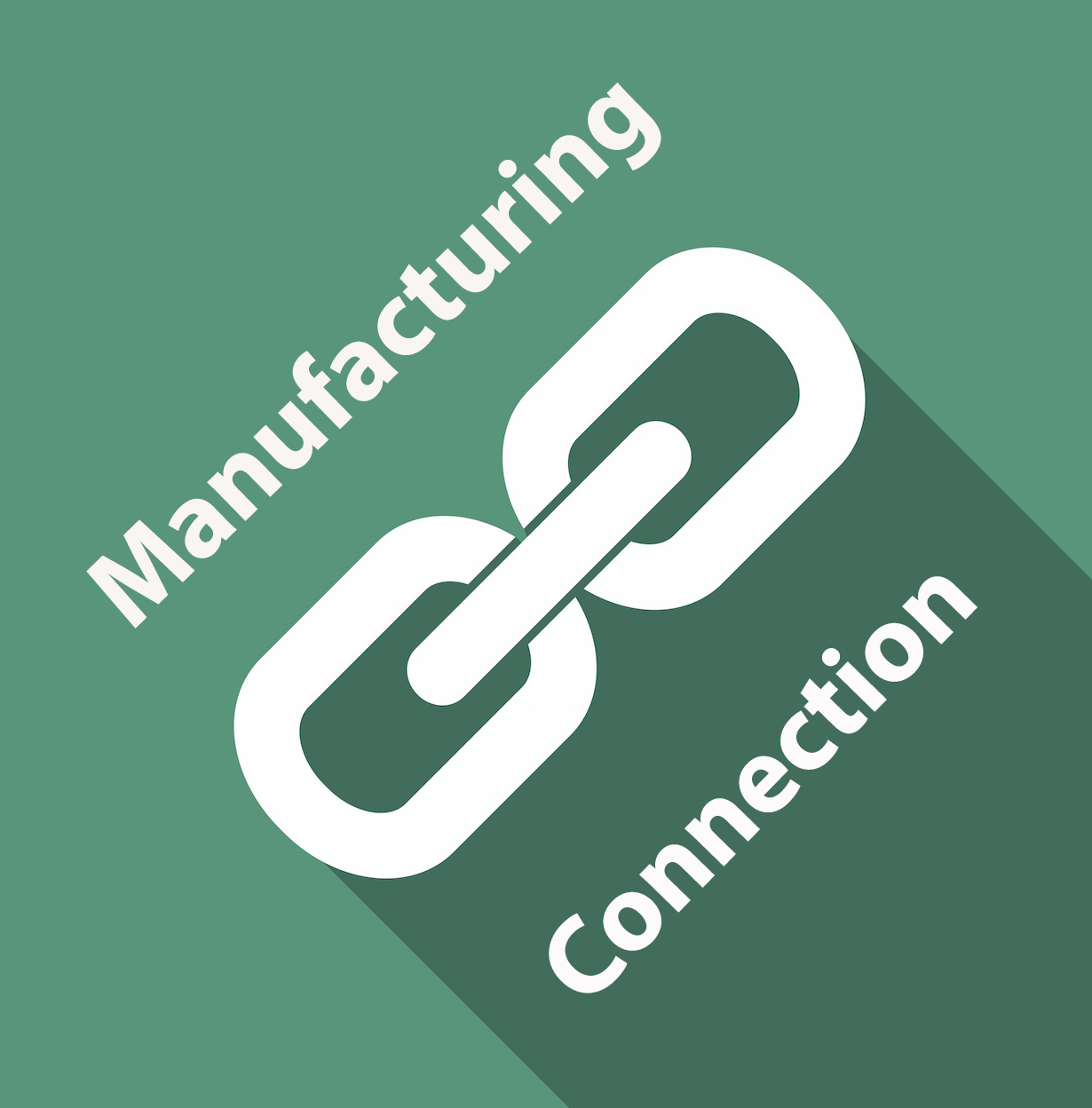
by Gary Mintchell | Jan 5, 2016 | Automation, News, Process Control, Technology
Just catching up on news that has built up over the extended holidays from Thanksgiving through New Years with one on process automation. I had a chat with Control Station’s Dennis Nash about the planned integration of its PlantESP Loop Performance Monitoring technology within the PlantPAx distributed control system from Rockwell Automation. Process data will be accessed natively from within the PlantPAx system environment using FactoryTalk Historian, and individual PID control loop configuration will be automatically populated to the new application’s dashboard.
Rockwell just keeps growing its process business. Its Process Systems User Group held last November in Chicago was yet another large gathering.
“Rockwell Automation continues its efforts to better serve the process industries by leveraging best-in-class solutions from its network of Encompass partners,” shared Tim Shope, Global Process Technical Consultant Manager from Rockwell Automation. “PlantESP is an obvious fit in that it will provide our customers with enhanced awareness of issues affecting their process’ day-to-day operational efficiency.”
Control Station’s PlantESP actively monitors the performance of PID control loops on a plant-wide basis and provides actionable insights. Equipped with a portfolio of key performance indices and advanced forensic tools, PlantESP simplifies the identification of performance issues and the isolation of the associated root-causes. Specific performance challenges addressed by PlantESP range from mechanical and controller tuning issues to constraints associated with process architecture. PlantESP uses a production facility’s existing process data and proactively alerts production staff of negative performance trends.
“The average plant has 100s if not 1000s of control loops which can be challenging for production staff to manage,” noted Rick Bontatibus, Control Station’s Vice President of Global Sales. “The combination of the PlantPAx System and PlantESP enables those same staff to focus their efforts on issues that will have the greatest impact on production efficiency and throughput.”
PlantESP is recognized as a leading control loop performance monitoring technology that has been successfully deployed at production facilities spanning the process industries. It is equipped with an array of highly effective and proprietary diagnostic tools, including advanced KPIs for identifying and quantifying stiction – a leading mechanical issue facing process engineers. PlantESP also includes a unique optimization utility called TuneVue that proactively captures everyday output changes for the purpose of isolating control loops that are in need of tuning. TuneVue is based on Control Station’s NSS Modeling Innovation and it is the only such utility that can accurately model the noisy, oscillatory process dynamics which are typical of industrial production and control environments. Collectively these and other PlantESP capabilities allow production staff to prioritize their efforts on issues that will have the greatest impact on performance.
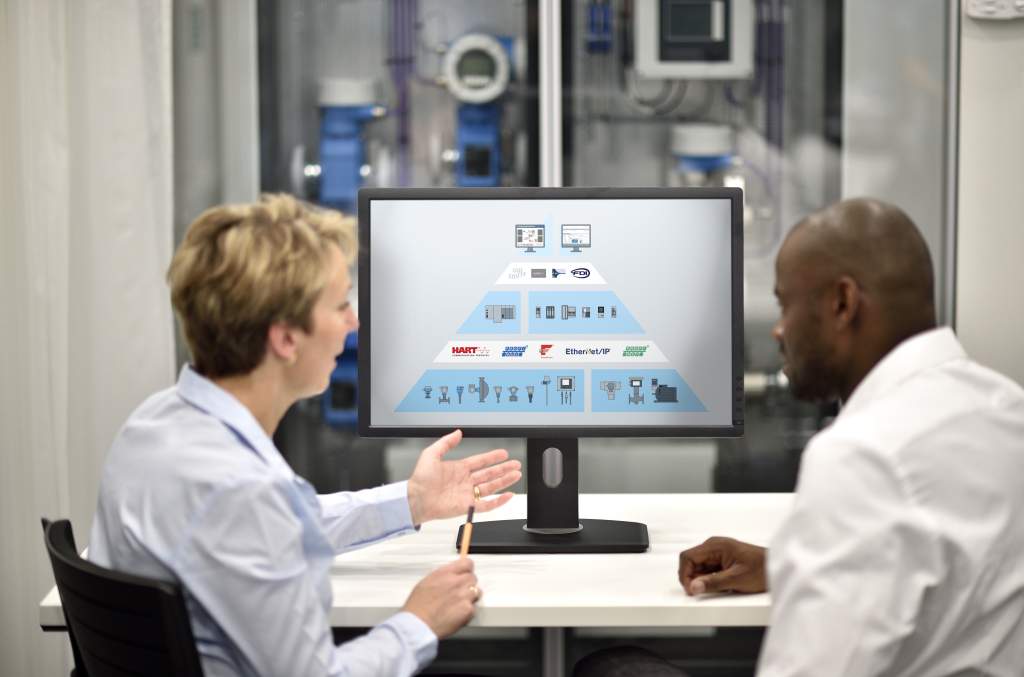
by Gary Mintchell | Dec 2, 2015 | Automation, Interoperability, News, Process Control, Standards, Technology

Here is an industrial automation announcement from the recent SPS IPC Drives trade fair held annually in Nuremberg, Germany. This one discusses a new open integration, some say interoperability, program based upon open standards.
This blog has now complete eight years—through three names and domains: Gary Mintchell’s Radio Weblog, Gary Mintchell’s Feed Forward, and now The Manufacturing Connection. Through these eight years one consistent theme is advocating for what I believe to be the user’s point of view—open integration.
Users have consistently (although unfortunately not always vocally) expressed the view that, while they love developing a strong partnership with preferred suppliers, they also want to be able to connect products from other suppliers as well as protect themselves by leaving an “out” in case of a problem with the current supplier.
The other position contains two points of view. Suppliers say that if they can control all the integration of parts, then they can provide a stronger and more consistent experience. Customers worry that locking themselves into one supplier will enable it to raise prices and that it will also leave them vulnerable to changes in the supplier’s business.
With that as an introduction, this announcement came my way via Endress+Hauser. That company is a strong measurement and instrumentation player as well as a valued partner of Rockwell Automation’s process business. The announcement concerns the “Open Integration Partner Program.”
I’m a little at a loss to describe exactly what this is—other than a “program.” It’s not an organization. Rather its appearance is that of a memorandum of cooperation.
The program promotes the cooperation between providers of industrial automation systems and fieldbus communication. To date, eight companies have joined the program:
AUMA Riester, HIMA Paul Hildebrandt, Honeywell Process Solutions, Mitsubishi Electric, Pepperl+Fuchs, Rockwell Automation, R. STAHL and Schneider Electric.
“By working closely with our partners, we want to make sure that a relevant selection of products can be easily combined and integrated for common target markets,” outlines Michael Ziesemer, Chief Operating Officer of Endress+Hauser. This is done by using open communication standards such as HART, PROFIBUS, FOUNDATION Fieldbus, EtherNet/IP or PROFINET and open integration standards such as FDT, EDD or FDI. Ziesemer continues: “We are open for more cooperation partners. Every market stakeholder who, like us, consistently relies on open standards is invited to join the Open Integration program.”
Reference topologies are the key
Cooperation starts with what are known as reference topologies, which are worked out jointly by the Open Integration partners. Each reference topology is tailored to the customers’ applications and the field communication technologies used in these applications. “To fill the program with life in terms of content, we are going to target specific customers who might be interested in joining us,” added Ziesemer.
Depending on industrial segment and market, the focus will be on typical requirements such as availability, redundancy or explosion protection, followed by the selection of system components and field instruments of practical relevance. This exact combination will then be tested and documented before it is published as a joint recommendation, giving customers concrete and successfully validated suggestions for automating their plant.
Ziesemer adds: “With this joint validation as part of the Open Integration, we go well beyond the established conformity and interoperability tests that we have carried out for many years with all relevant process control systems.”
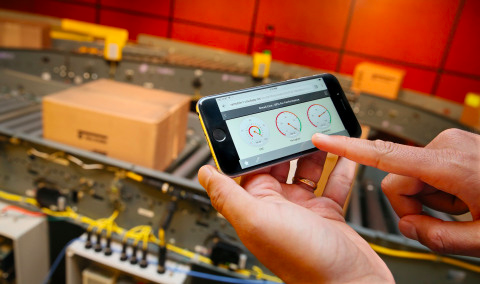
by Gary Mintchell | Nov 23, 2015 | Automation, Manufacturing IT, News, Operations Management
I spent more time and took far more notes at the Operational Intelligence stand on my tour of Rockwell Automation’s annual fete, Automation Fair, than any other–even Integrated Architecture which I reported last week.
One reason was a press release that I received regarding a “co-invention” between Rockwell Automation and Microsoft on a mobility solution. This will become a great enabler of the Connected Enterprise according to the release. Unfortunately, when I studied the release, I couldn’t figure out what “it” was. Probably too many companies and too many marketing managers trying to get their two cents in resulting in too many nice-sounding but vague words 😉
Thanks to Ryan Cahalane, director of software product management, and others, I came away with enough of an understanding to see how potentially valuable this project could be.
Mobility
 Let’s start with mobile devices. Workers at all levels are bringing them to work whether IT is ready or not. When you own one, you want to use it. So, why not leverage commercial technologies developed by Microsoft (its Project Thali) with industrial application and robustness from Rockwell (Project Stanton).
Let’s start with mobile devices. Workers at all levels are bringing them to work whether IT is ready or not. When you own one, you want to use it. So, why not leverage commercial technologies developed by Microsoft (its Project Thali) with industrial application and robustness from Rockwell (Project Stanton).
Rockwell is making extensive use of HTML 5. But this toolkit in development includes a technology called JXcore from Nubisa. JXcore is a Node distribution. It is designed for developing applications for mobile and embedded devices using JavaScript and leveraging the Node ecosystem. Use the same codebase for server and mobile applications.
The toolkit enables Rockwell Automation offerings with a consistent web-based user interface for a specific device; tablet, smartphone or desktop and now includes a prototype app, dubbed Project Stanton (@Project_Stanton).
Operational Intelligence From Logix
 The second technology I wish to discuss is the latest release of FactoryTalk VantagePoint 7.0. Rockwell Automation says, “For manufacturers, making swift use of big data just got easier. The addition of import and configure mobile-based work flows in the FactoryTalk VantagePoint enterprise manufacturing intelligence (EMI) v7.0 software enables the one-time configuration of a manufacturing intelligence solution.”
The second technology I wish to discuss is the latest release of FactoryTalk VantagePoint 7.0. Rockwell Automation says, “For manufacturers, making swift use of big data just got easier. The addition of import and configure mobile-based work flows in the FactoryTalk VantagePoint enterprise manufacturing intelligence (EMI) v7.0 software enables the one-time configuration of a manufacturing intelligence solution.”
This software provides users a seamless way to access their Logix-based data by providing a simple, guided work flow to store and visualize information. Everything from installation, configuration and visualization has been enhanced and consolidated – so users can interact with their Logix-based control data from their device of choice: PC, tablet or smartphone. To promote intelligent decision-making, the new work flows enable authorized users to store and visualize specific data views and trends, and easily share these views with collaborators across the enterprise.
“The FactoryTalk VantagePoint experience now provides access to manufacturing information faster than ever,” said Angela Rapko, product manager, EMI Software Portfolio, Rockwell Automation. “For users, this more cohesive and intuitive experience is a significant step forward. The less time operators spend configuring systems, the more they can focus on how their plants are actually functioning. We have truly reduced the time to trend data with this release.”
Additionally, FactoryTalk VantagePoint software will now silently install with FactoryTalk Historian SE software from Rockwell Automation. Upon completion, the user will be greeted with a VantagePoint mobile Web page, including the new import and configure options.
From any PC or tablet, a user can browse through the FactoryTalk Directory server to an online controller; select the tags from which they aim to collect associated data; and configure scan rates and additional historian parameters. Once this process is complete, the selected tags are stored in the FactoryTalk Historian solution and automatically configured for the FactoryTalk VantagePoint software. By simultaneously configuring tags, a user within the VantagePoint mobile work flow makes a few simple selections in order to begin collecting data, and creating dashboards and trends.
Also new, FactoryTalk VantagePoint v7.0 software offers SQL Server Express with install. This removes complex licensing options from the install process.

 What was once called Information Technology (IT) and then Manufacturing IT (for the IT jobs directly working with the plant such as MES applications) now seems to be falling under the Internet of Things label. Probably part of the reason that there is confusion as to what the IoT term really means.
What was once called Information Technology (IT) and then Manufacturing IT (for the IT jobs directly working with the plant such as MES applications) now seems to be falling under the Internet of Things label. Probably part of the reason that there is confusion as to what the IoT term really means.

 Remote monitoring and diagnostics is a key driver for the Internet of Things strategy adoption in manufacturing and production. Advances in both the technology and services involved in this area appears to be the area of best economic return these days.
Remote monitoring and diagnostics is a key driver for the Internet of Things strategy adoption in manufacturing and production. Advances in both the technology and services involved in this area appears to be the area of best economic return these days.









